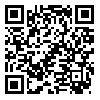Volume 20, Issue 2 (Paramedical Sciences and Military Health 2025)
Paramedical Sciences and Military Health 2025, 20(2): 75-83 |
Back to browse issues page
Download citation:
BibTeX | RIS | EndNote | Medlars | ProCite | Reference Manager | RefWorks
Send citation to:



BibTeX | RIS | EndNote | Medlars | ProCite | Reference Manager | RefWorks
Send citation to:
Heidary S. Nurses’ Role in Ethical Crisis Management on the Battlefield: A Narrative Review. Paramedical Sciences and Military Health 2025; 20 (2) :75-83
URL: http://jps.ajaums.ac.ir/article-1-483-en.html
URL: http://jps.ajaums.ac.ir/article-1-483-en.html
Department of Nursing, Faculty of Nursing, Aligudarz, Lorestan University of Medical Sciences, Khorramabad, Iran. , Shimaheidarye@gmail.com
Abstract: (115 Views)
Introduction: The role of nurses in managing ethical crises on the battlefield is recognized as a vital topic in healthcare. Nurses, as key members of medical teams, face ethical challenges arising from intense psychological pressures and critical conditions.
Materials and Methods: This study was conducted as a narrative review. A systematic search was performed in PubMed, Scopus, SID, and Google Scholar using relevant keywords. From 250 retrieved articles, after removing duplicates and screening titles and abstracts, 50 initial relevant articles were selected. Applying inclusion criteria including: 1) focus on the nurses' role in managing ethical crises on the battlefield; 2) articles published between 2000 and 2025; and 3) access to full text; and excluding unrelated, non-war, or incomplete texts, finally 13 articles including qualitative, quantitative, and systematic review studies were entered into the analysis.
Results: The findings were categorized into four main themes: 1) ethical challenges related to patient prioritization (triage), causing psychological stress and ethical conflicts for nurses; 2) caring for enemy wounded and conflicts arising from the contradiction between professional responsibility, human values, and nationalist feelings; 3) psychological and environmental pressures affecting nurses' mental health and ethical decision-making ability; 4) educational shortcomings including lack of clear protocols and absence of simulation-based training leading to reduced resilience and increased stress in nurses.
Conclusion: Ethical crises impact nurses' decisions, and identifying these challenges can help design effective educational programs and create supportive work environments. These measures improve the quality of care and the mental health of nurses. Strengthening communication among medical team members also reduces tension and enhances service quality. Practical training programs and support networks enable nurses to share experiences and receive emotional and professional support. Further research can provide better solutions for policymakers.
Materials and Methods: This study was conducted as a narrative review. A systematic search was performed in PubMed, Scopus, SID, and Google Scholar using relevant keywords. From 250 retrieved articles, after removing duplicates and screening titles and abstracts, 50 initial relevant articles were selected. Applying inclusion criteria including: 1) focus on the nurses' role in managing ethical crises on the battlefield; 2) articles published between 2000 and 2025; and 3) access to full text; and excluding unrelated, non-war, or incomplete texts, finally 13 articles including qualitative, quantitative, and systematic review studies were entered into the analysis.
Results: The findings were categorized into four main themes: 1) ethical challenges related to patient prioritization (triage), causing psychological stress and ethical conflicts for nurses; 2) caring for enemy wounded and conflicts arising from the contradiction between professional responsibility, human values, and nationalist feelings; 3) psychological and environmental pressures affecting nurses' mental health and ethical decision-making ability; 4) educational shortcomings including lack of clear protocols and absence of simulation-based training leading to reduced resilience and increased stress in nurses.
Conclusion: Ethical crises impact nurses' decisions, and identifying these challenges can help design effective educational programs and create supportive work environments. These measures improve the quality of care and the mental health of nurses. Strengthening communication among medical team members also reduces tension and enhances service quality. Practical training programs and support networks enable nurses to share experiences and receive emotional and professional support. Further research can provide better solutions for policymakers.
Type of Study: review |
Subject:
full articles
Received: 2025/06/4 | Accepted: 2025/06/20 | Published: 2025/06/30
Received: 2025/06/4 | Accepted: 2025/06/20 | Published: 2025/06/30
Send email to the article author
| Rights and permissions | |
 |
This work is licensed under a Creative Commons Attribution-NonCommercial 4.0 International License. |




